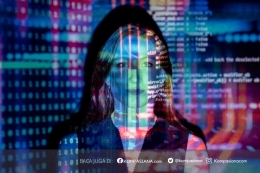The commonly discussed forms of radical sustainable development are rooted in either ecocentric or anthropocentric perspectives. Both eco-socialism and social ecology constitute anthropocentric (or homocentric) strong sustainability: being essentially humanistic but also embracing stewardship of nature, environmentally benign but centred on social justice. Its desirability is argued from the perspective of a socialist critique of the alternative anthropocentrically-grounded version of sustainability that is widely supported today, known as ecological modernization. It is emphasized that ecological modernization is at best only weakly sustainable and not in the long term. Therefore, Current corporate reactions against both environmentalism and social democracy are therefore unsurprising (Pepper, 1998).
The deep suspicion of science and technology that is associated with ‘Radical Ecology' also makes reconciliation between ‘utilitarian scientist' and environmental activists' feel only marginality and frustration. The difficulties were not with the political and cultural resonances of science, but with a new environmental movement that demanded popular participation in framing the activist agenda. In contrast, The culture of bureaucracy contrasted sharply with the public participation demanded by the green political movement, and this contrast has contributed significantly by the discomfort of the practitioners who saw the media identifying the term ‘ecology' with new environmental politics (Robin, 2006).
Global modernization, whether purportedly ecological or not, is likely to foster continued attempts at displacement and externalization of both environmental and social costs (Pepper, 1998). In fact, economic aspect become the ultimate factor that influences sustainability. Capital notion could increase to the limiting factors that will definitely increasing many idea of sustainable development both radicalism and reformism.
Conclusion
In developing countries for example rather than enhance real improvement in its development growth, different kind of perception from sustainable development may obscure the main goal of sustainable development itself. In turn, Sustainable development become radical and rigid to any improvement effort. To be effective, a reformism strategies must occur at the appropriate scales. Both perspectives are identifying a common heritage may lead to a more thoughtful and precise analysis of what aspect of the system are problematic for the earth. Nonetheless, Radical and reformism sustainable development share a common purpose in the prosperity of mankind.
References Cited
- Gawor, L. 2007. Globalization and its alternatives: antiglobalism, alterglobalism and the idea of sustainable development. Sustainable Development, 16 (2): 126 - 134.
- IUCN . 2006. The Future of Sustainability: Re-thinking Environment and Development in the Twenty-first Century. Report of the IUCN Renowned Thinkers Meeting, 29-31 January, 2006. Available online:http://cmsdata.iucn.org/downloads/iucn_future_of_sustanability.pdf. (Accessed 06 January 2009)
- Kates, R.W., T.M. Parris, and A.A. Leiserowitz. 2005. What Sustainable Development? Goals, Indicators, Values and Practise. Environment: Science and Policy for Sustainable Development, 47 (3): 8 -21.
- Langhelle, O. 1999. Sustainable Development: Exploring the Ethics of Our Common Future.International Political Science Review, 20 (2): 129-149.
- Munro, J.F. 1995. Sustainable Development as An Organizing Principle for U.S. Foreign Policy: Opportunities and Enduring Constrains. Oak Ridge National Laboratory, Martin Marietta Energy Systems, U.S. Department of Energy.
- OECD (Organisation for Economic Co-operation and Development). 2001. Sustainable development: Critical issues. The OECD Policy Brief. Available online: http://www.oecd.org/publication/Pol_brief/. (Accessed 23 December 2008)
- Orsato, R.J., and S.R. Clegg. 2005. Radical reformism: towards critical ecological modernization.Sustainable Development, 13 (4): 253 - 267.
- Pepper, D. 1998. Sustainable development and ecological modernization: A radical homocentric perspective. Sustainable Development, 6 (1): 1 - 7.
- Robin, L. 2006. Radical ecology and conservation science: an Australian perspective. In: The Environment in Anthropology: a reader in ecology, culture and sustainable living (Eds. N. Haenn and R. Wilk). New York: University Press Book.
- Temple. 1992. What Is Sustainable Development? Available online:http://www.menominee.edu/sdi/whatis.htm. (Accessed 06 January 2009).
- Wikipedia. 2009. Sustainable Development. Available online:http://en.wikipedia.org/wiki/Sustainable_development (Accessed 06 January 2009).
Baca konten-konten menarik Kompasiana langsung dari smartphone kamu. Follow channel WhatsApp Kompasiana sekarang di sini: https://whatsapp.com/channel/0029VaYjYaL4Spk7WflFYJ2H







